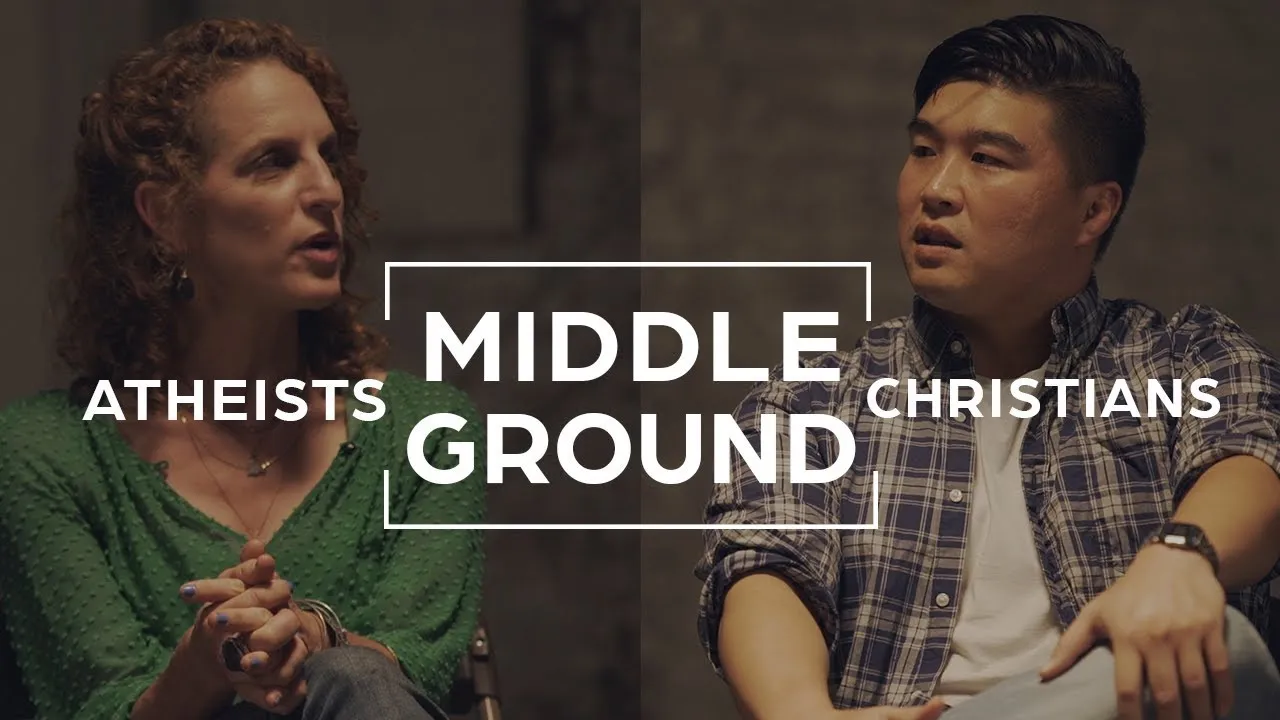Christian Vs. Atheist Debates: Key Differences In Perspective
Debates between Christians and atheists have been happening for centuries, sharpening theological reasoning on both sides. When worldviews collide, perspectives on human nature, morality, science, and the origins of life are thoroughly questioned.
Here’s a quick answer: Christian vs atheist debates highlight key differences in assumptions about the universe, human purpose, morality, evidence for God, and interpretations of science and history.
In this comprehensive guide, we will analyze the central points of disagreement between Christians and atheists in debates. With insights from leading Christian apologists and atheist thinkers, we’ll contrast the core arguments from both sides on critical issues that divide these worldviews.
Differing Assumptions About the Universe
Atheist view of a natural, undirected universe
Atheists generally hold the perspective that the universe is a natural and undirected system, devoid of any supernatural influence or higher power. They believe that everything that exists can be explained through scientific theories and natural laws.
According to their worldview, the universe came into existence through natural processes such as the Big Bang, and life on Earth evolved through the mechanism of natural selection.
Atheists argue that there is no evidence to support the existence of a divine creator or intelligent designer. They point to scientific discoveries and advancements as a way to explain the origin and complexity of the universe.
They emphasize the importance of critical thinking, reason, and evidence-based approaches to understanding the world.
For more information on atheism and its perspectives, you can visit reputable websites like American Atheists or Council for Secular Humanism.
Christian view of creation by an intelligent God
Christians, on the other hand, believe in a different perspective of the universe. They hold the belief that the universe was created by an intelligent God who has a purpose and plan for everything. According to their worldview, God is the ultimate creator and sustainer of all things, including the laws of nature.
Christians argue that the complexity and order found in the universe point to the existence of a divine creator. They believe that God intentionally designed and fine-tuned the universe to support life on Earth.
They also view human beings as unique creations made in the image of God, with a purpose and inherent value.
Christians often refer to religious texts such as the Bible to support their beliefs about the creation of the universe. They see the universe as a reflection of God’s glory and a testament to His power and wisdom.
If you want to explore more about the Christian perspective on creation, you can visit websites like Christianity.com or Desiring God.
Human Purpose and Morality
Atheist perspectives on subjective morality
Atheists often approach the concept of morality from a subjective standpoint. They believe that moral values and principles are not derived from a higher power or an objective source, but rather are a product of human reasoning and societal norms.
Atheists argue that morality is a human construct that evolves over time, shaped by cultural, social, and individual perspectives. They emphasize the importance of empathy, reason, and critical thinking in determining what is morally right or wrong.
This perspective does not mean that atheists lack a sense of morality or behave immorally. On the contrary, many atheists hold strong ethical values and strive to live compassionate and virtuous lives.
Their belief in subjective morality simply means that they do not attribute their moral compass to a divine authority.
Christian belief in objective moral truths
Christians, on the other hand, believe in the existence of objective moral truths that are grounded in the nature of God. They argue that moral values and principles are not subjective, but rather objective and unchanging.
Christians believe that God’s divine nature serves as the foundation for moral absolutes, providing a universal standard of right and wrong.
For Christians, human purpose and morality are intrinsically linked. They believe that God has created humans with a specific purpose and that adherence to moral principles is essential in fulfilling that purpose.
Christians strive to align their actions with God’s moral standards, seeking to live in accordance with His teachings as revealed in religious texts such as the Bible.
| Atheist Perspective | Christian Belief |
|---|---|
| Atheists view morality as subjective, shaped by human reasoning and societal norms. | Christians believe in objective moral truths grounded in the nature of God. |
| They emphasize empathy, reason, and critical thinking in determining what is morally right or wrong. | Christians strive to align their actions with God’s moral standards as revealed in religious texts. |
| Atheists do not attribute their moral compass to a divine authority. | Christians believe that God’s divine nature serves as the foundation for moral absolutes. |
It is important to note that these perspectives can vary among individuals within both the atheist and Christian communities. Not all atheists hold the same views on morality, and not all Christians interpret moral teachings in the same way.
Understanding these differences in perspective can foster meaningful dialogue and promote a better understanding between individuals of different beliefs.
Evidence for and Against God’s Existence
Atheist standards for verifiable evidence
Atheists often rely on empirical evidence and the scientific method to support their belief that God does not exist. They argue that tangible evidence, such as observations, experiments, and logical reasoning, is crucial for establishing the existence of any entity, including God.
Atheists often demand concrete proof that can be verified and replicated by others.
Atheists also emphasize the importance of Occam’s Razor, a principle that suggests the simplest explanation is usually the most plausible. They contend that the existence of God adds unnecessary complexity to our understanding of the world, and that naturalistic explanations can account for the phenomena traditionally attributed to divine intervention.
Furthermore, atheists often question the reliability of religious texts and personal testimonies as evidence for God’s existence. They argue that these sources are subjective and lack the objectivity required for scientific scrutiny.
Christian arguments from philosophy and experience
Christians approach the question of God’s existence from a different perspective. While they acknowledge the importance of evidence, they also draw upon philosophical arguments and personal experiences as valid forms of proof.
One common philosophical argument used by Christians is the cosmological argument, which posits that everything in the universe has a cause, and therefore, there must be a first cause or a prime mover that initiated everything. They argue that this first cause is God.
Christians also point to the design argument, which suggests that the complexity and order in the universe are evidence of an intelligent designer. They highlight the intricacies of the natural world, such as the fine-tuning of the physical constants, as indications of a purposeful creator.
Additionally, Christians often rely on personal experiences and testimonies as evidence for God’s existence. They believe that encounters with the divine, answered prayers, and transformative spiritual experiences provide compelling evidence of a higher power.
It is important to note that while Christians may find these arguments convincing, they do not constitute scientific proof and are ultimately matters of faith.
Interpretations of Science and History
Atheist argument of incompatibility with science
Atheists often argue that religious beliefs, including those held by Christians, are incompatible with science. They contend that religious teachings are based on faith and dogma, while science relies on evidence, reason, and the scientific method.
According to atheists, supernatural explanations offered by religious beliefs cannot be tested or proven using scientific methods, making them inherently unscientific.
They argue that religious interpretations of scientific findings, such as the theory of evolution or the Big Bang theory, are often seen as threats to religious teachings. Atheists believe that these scientific discoveries challenge religious narratives and force believers to either reject scientific evidence or reinterpret religious texts to fit their worldview.
They point to instances where religious institutions have historically opposed scientific advancements, such as the Galileo affair, as evidence of this incompatibility.
Furthermore, atheists argue that religious beliefs can hinder scientific progress. They claim that when religious dogma is given priority over scientific evidence, it can impede critical thinking and hinder the advancement of knowledge.
They advocate for a secular society where decisions are based on empirical evidence and rationality, rather than religious doctrines.
Christian reconciling of science and faith
On the other hand, Christians often seek to reconcile their faith with scientific discoveries. They argue that science and religion are not necessarily in conflict, but rather offer different ways of understanding the world.
Many Christians believe that God is the creator of the universe and that scientific discoveries can provide insight into the mechanisms and processes through which God operates.
Christian scholars and theologians have developed various interpretations that allow for the compatibility of science and faith. Some Christians embrace theistic evolution, which posits that evolution is the scientific explanation for the development of life on Earth, but that God guided the process.
Others view the Bible as a theological and moral guide, rather than a scientific textbook, and interpret its creation stories metaphorically rather than literally.
Christian apologists argue that science and religion can coexist because they answer different questions. While science seeks to explain the how and what of the natural world, religion addresses questions of meaning, purpose, and morality.
They believe that both science and faith have their own valid and important roles in human understanding.
Many Christian scientists have made significant contributions to various scientific fields. Their faith does not hinder their scientific inquiry, but rather enhances their curiosity and wonder about the natural world.
They see scientific discoveries as a way to uncover the intricacies of God’s creation.
Conclusion
Christian vs. atheist debates continue to unpack profound differences in worldviews and assumptions on critical issues.
While substantial disagreements remain, respectful dialogue and debate can help sharpen reasoning, reveal blind spots, and find common ground on what it means to live ethically.








